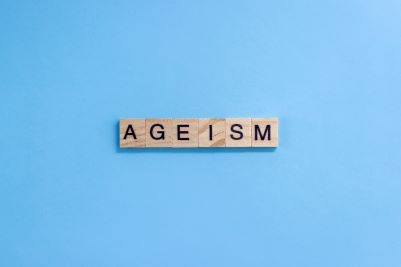- 64% of workers over 40 believe age-based discrimination in the workplace is common, while just 50% say the same about racism.
- 34% of U.S. workers in their 40s feel their age “holds them back” at work— more than sexism, disabilities, or sexual orientation.
- 60% of workers who lack confidence in their ability to get a new job cite ageism as a reason.
Few doubt the existence of ageism in the workplace. But it has generally been seen as a minor concern compared with other issues of systemic discrimination, such as racism, sexism, or homophobia.
New data suggests this may underestimate the significant role age plays in the workplace. Moneyzine reveals that U.S. workers over 40 actually see ageism as one of the most significant factors at play, impacting both their day-to-day experience of work and their perceived prospects for future employment.
Workplace Ageism Is Widespread
A recent survey explored the workplace experience of U.S. workers over 40—so-called “Gen Pop.” The results suggest that ageism is a bigger part of the everyday experience of this group than many assume.
On average, a quarter of participants said they felt excluded from projects or teams because of their age. Counterintuitively, this was actually more common among the 40–49 group (35%) than the 50+ group (20%).
Age-based discrimination also affects individuals’ belief in their future job prospects. Of those who believed they would struggle to get a new job within 3 months, a total of 60% of Gen Pop workers cited age discrimination as a barrier. This suggests older workers may be more conservative about their career due to discrimination and end up working longer in jobs they are unsatisfied with.
Just 13% of Gen Pop say they’ve made a formal complaint about ageism, suggesting they feel unable to voice concerns or feel doing so is unlikely to have a positive effect.
But the best way to capture the extent of the issue is not how widespread the issue is but rather how workers’ perceptions of ageism compare with other systemic issues.
Ageism Is the Issue for Older Workers
When asked what factors hold them back at work, 30% of Gen Pop cite age. This is nearly twice as many as those who cited gender (18%), race (18%), and disability (18%) and exactly two times more than those who say sexual orientation (15%).
Elsewhere, participants were asked about the kinds of discrimination they see in the workplace today. While 50% said they saw or experienced racism, 64% said they observed or felt ageism.
These findings should not be used to challenge the importance or severity of other systemic discrimination. Instead, they suggest that ageism is more prevalent than many assume and that it may still be seen as more culturally acceptable than other forms of discrimination.
Do Laws Need to Change?
This tracks with another finding: 90% of respondents said they support efforts to strengthen the United States’s age discrimination laws, while 88% agree that older Americans should be protected from age discrimination just like they are from discrimination based on race, sex, national origin, or religion.
In fact, 65% of respondents believe that Americans should not be required to provide age-related information on their job application or during the interview process.
“These findings paint an alarming picture of ageism in the workplace. They suggest ageism should be included more prominently in conversations about workplace discrimination. But the first step is simply acknowledging the scale of the issue,” says Jonathan Merry, CEO of Moneyzine.
Jonathan Merry is the CEO of Moneyzine.com.

